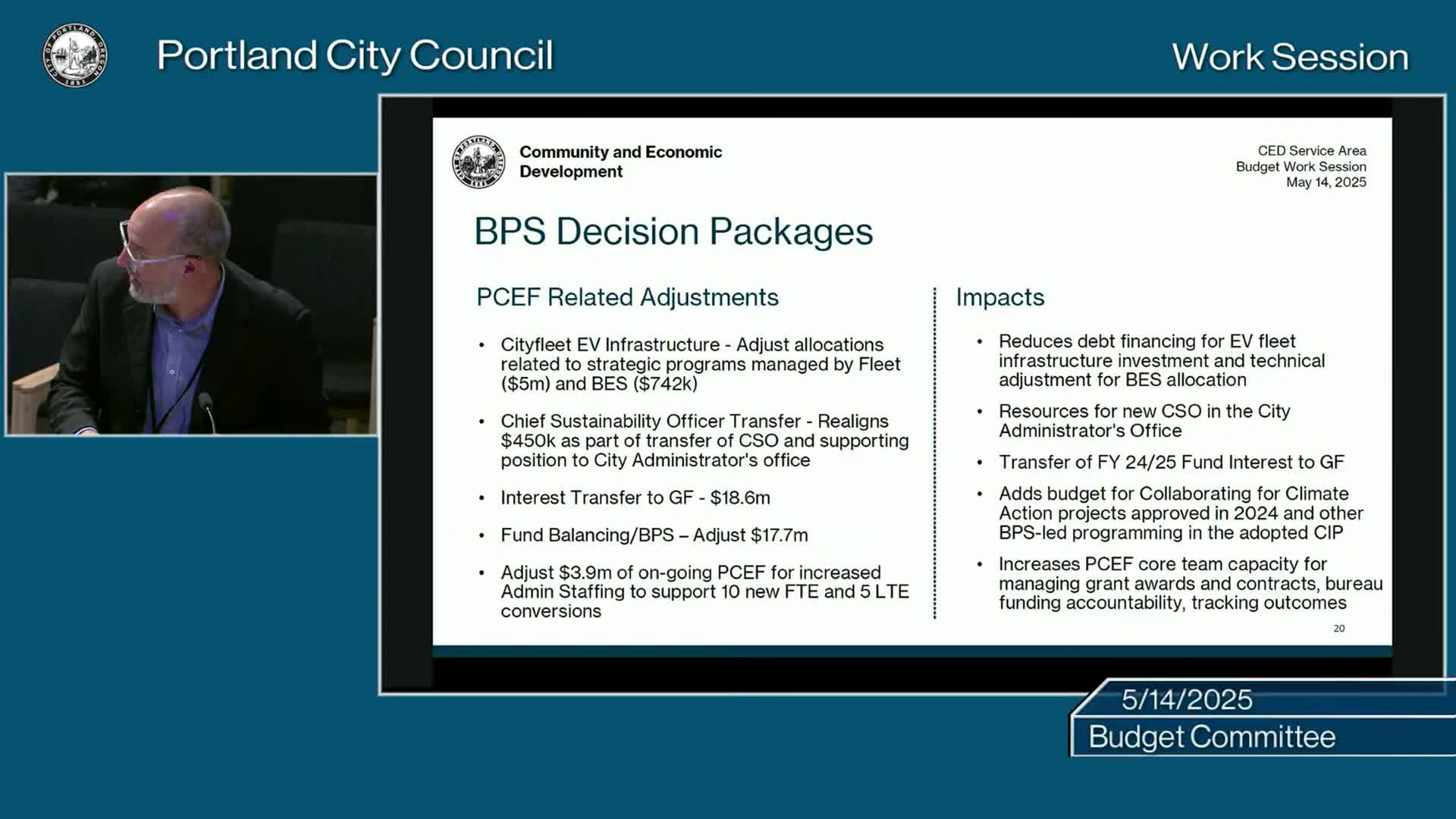Article not found
This article is no longer available. But don't worry—we've gathered other articles that discuss the same topic.
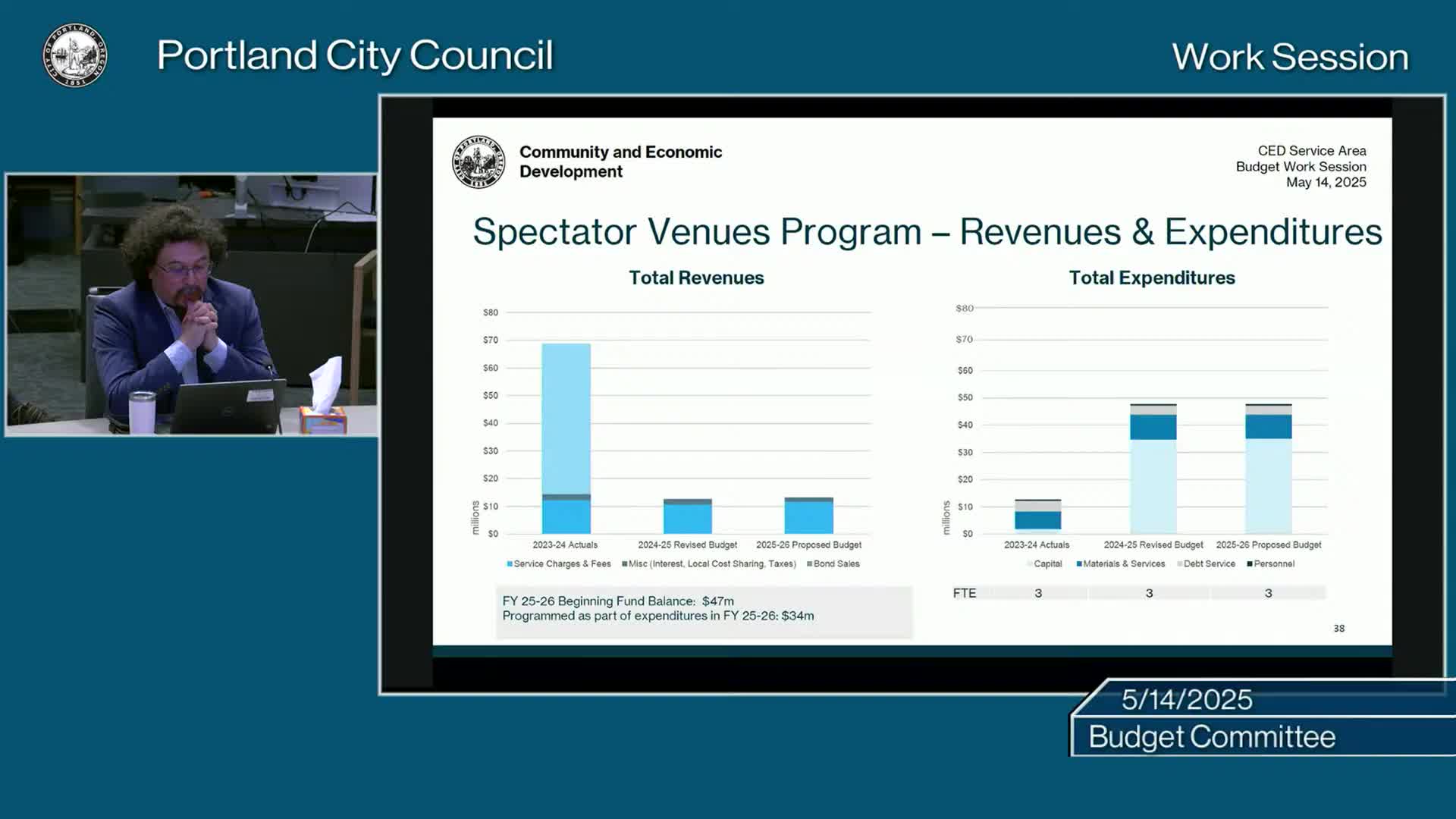
Arts and Culture office, spectator venues report shifting fund balances and a technical cut to correct
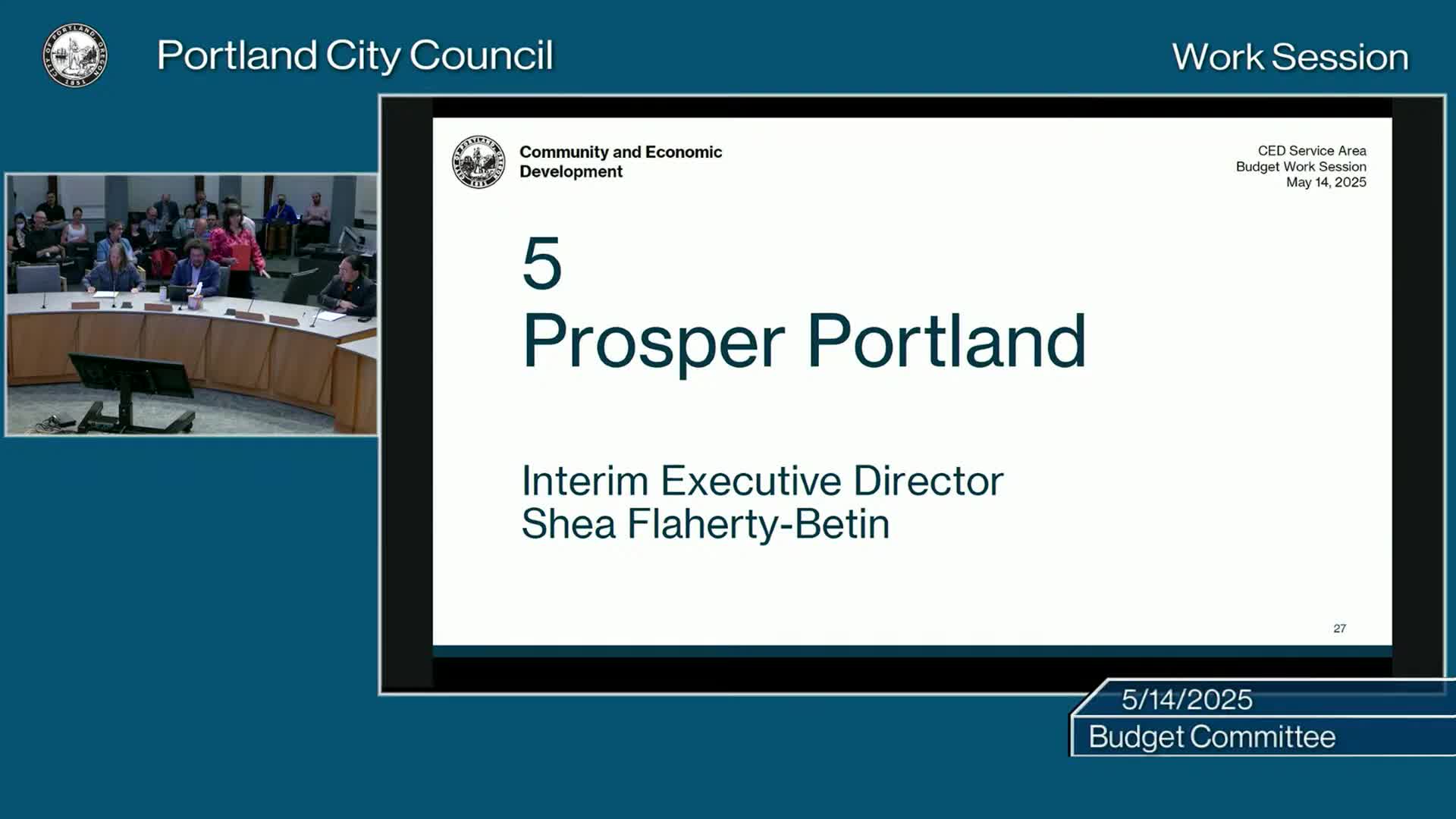
Council debates whether to use Prosper Portland's Strategic Investment Fund to backfill general-fund cuts
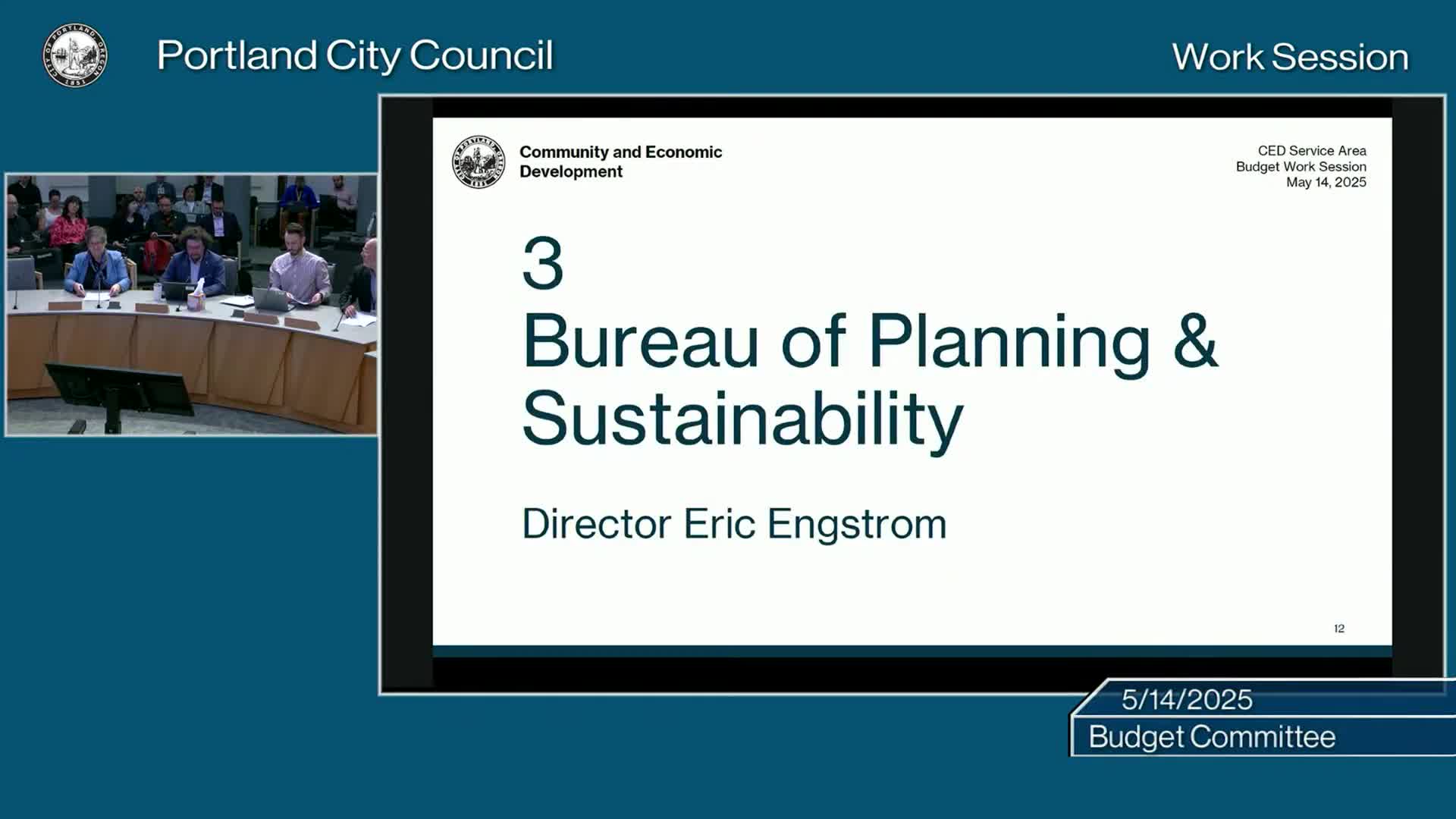
BPS explains climate fund structure as council presses on $100 million reserve idea
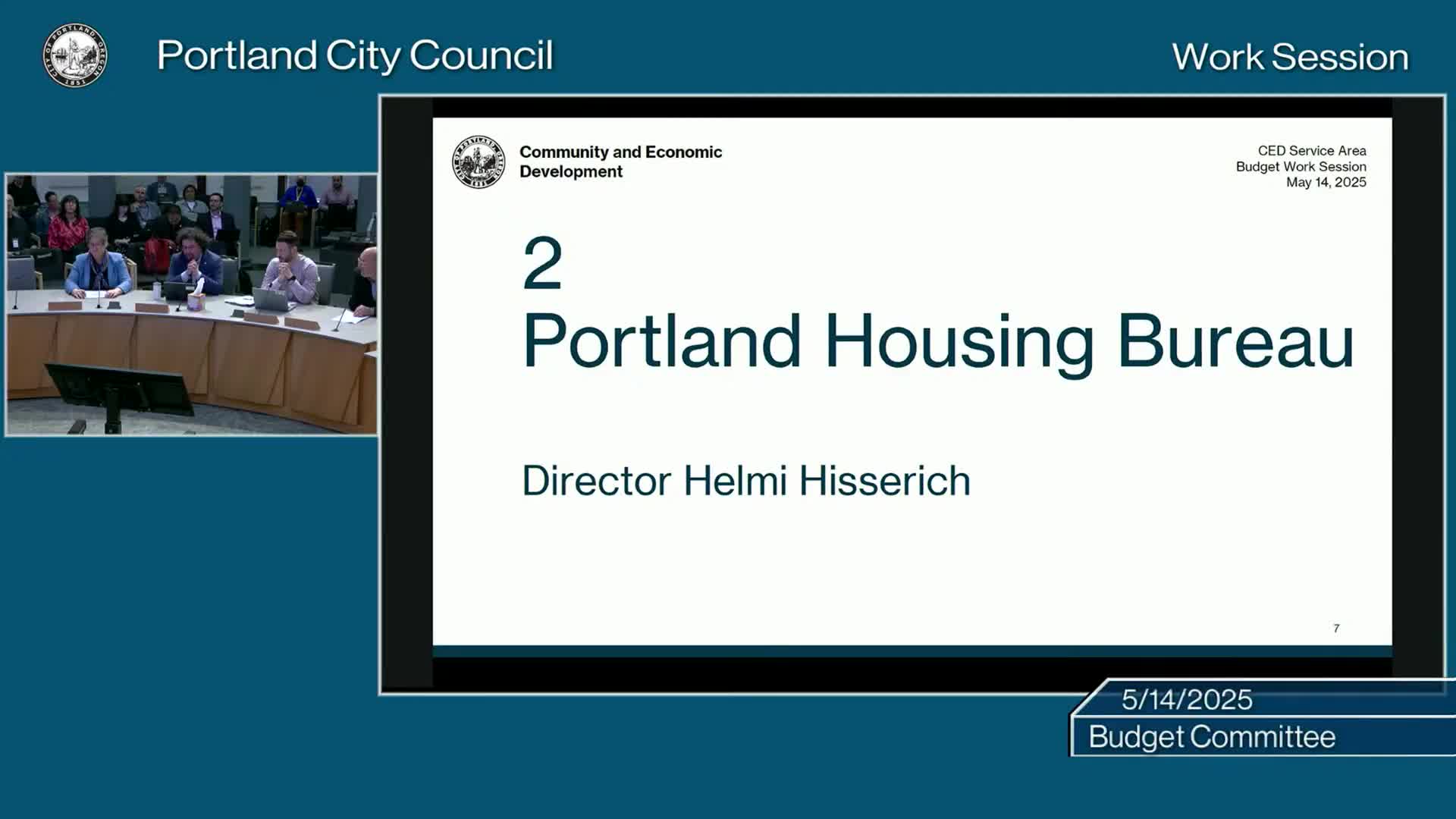
Housing bureau outlines $243 million budget; proposes pilot, cuts to down-payment and repair programs
